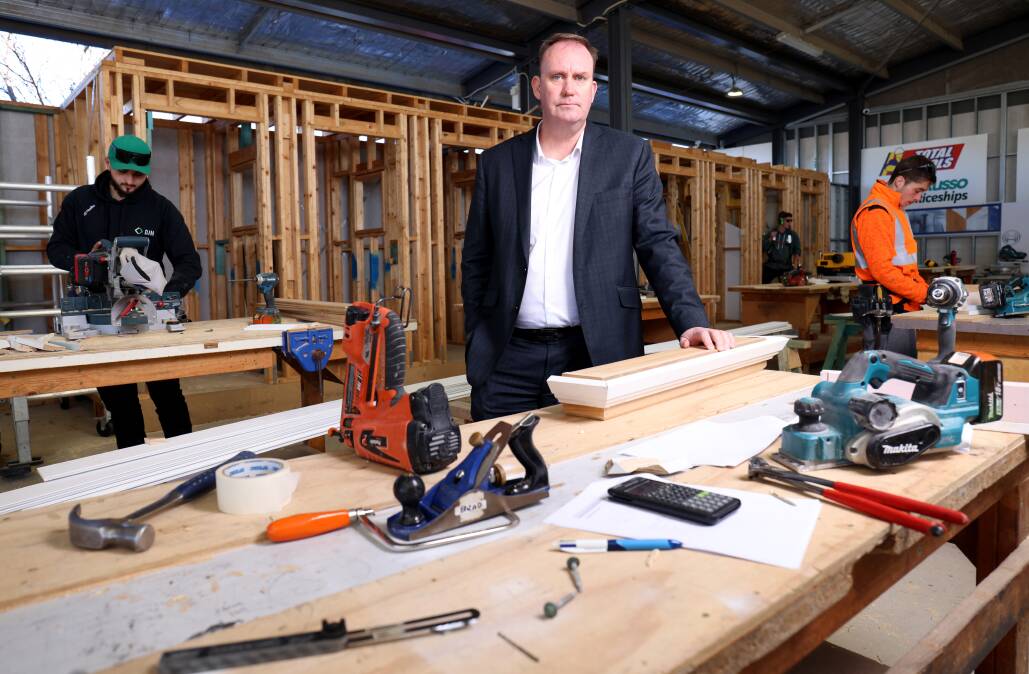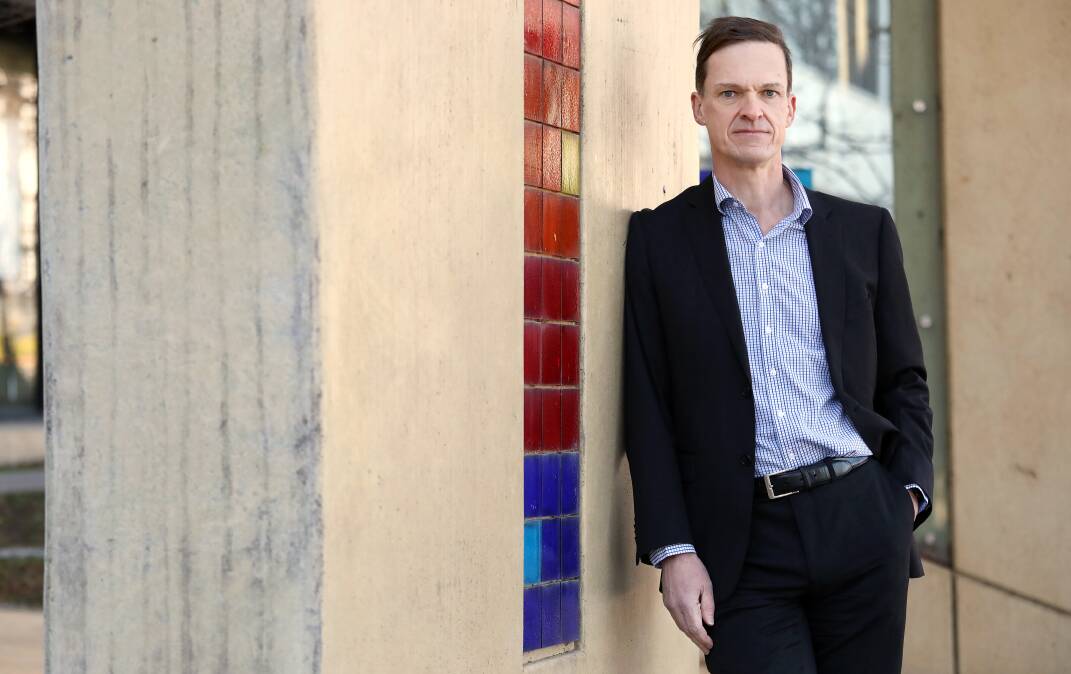
In the throes of a labour crisis, Canberra's industry leaders won't wait to brainstorm answers.
For businesses, the announcement of a national jobs and skills summit to be held in Canberra in September was a relief, signalling the severity of the problem had not gone unnoticed.
But the wear and tear caused by the national skills shortages was already plain to see in some of Canberra's key industries.
Weeks-long delays in the city's construction projects, a tourism industry that can't attract labour and a booming cyber industry struggling to cobble together a workforce with security clearances are all part of the picture.
Canberra has always relied on interstate construction workers to prop up its workforce.
In August 2021, when the ACT government announced a lockdown the workforce plummeted. Now that number has climbed back up above pre-COVID levels, but it's not enough.
With states and territories forging forward with major projects to stimulate the economy, Canberra can no longer count on borrowing workers from Melbourne and Sydney.
"Members are reporting skill shortages across all sectors of the industry at the moment and at levels that many haven't seen before in their career," Master Builders ACT chief executive Michael Hopkins said.
Construction managers were the third-most sought-after workers in May, with 343 job ads listed across Seek, Careerone and Jobactive, compiled by the National Skills Commission.
Building and construction enrolments at the Canberra Institute of Technology remained high. Plumbing apprenticeships ranked third for enrolments, while carpentry apprenticeships had the fifth-highest take-up this year.
This was despite the ACT offering the lowest subsidies for construction courses in the country. Carpentry apprentices in Canberra received a subsidy of $11,400 - the highest being $25,500.
"Put simply their level of funding has to increase if the ACT is to remain competitive with other states and territories," Mr Hopkins said.
Canberra's small to medium businesses, which make up the majority, were also often overshadowed by public and larger private sector employers with deeper pockets and more benefits on hand.
For this reason, business groups were lobbying the ACT government to go on a "workforce attraction offensive", spruiking the Canberra lifestyle interstate and overseas.
"We want to promote everything that Canberra has to offer for someone thinking of moving to Canberra, or joining the building and construction industry," Mr Hopkins said.

Before the pandemic, Canberra's tourism sector stood at the cusp of something special, National Capital Attractions Association president Russell Jackson said.
"The desire and the appetite of all of the attractions and providers here in Canberra is to get back to that level and if not exceed it," Mr Jackson said.
Quantifying those losses was difficult even for those in the know, given the sprawling nature of the work.
"Tourism is a huge sector, it can be anything from food and beverage attendants all the way through to general managers and senior executives and everything in between," Mr Jackson said.
"We're talking maintenance people, front desk, visitor services, education staff and tour guides. It really is a huge, huge gamut of roles."
There were 114 ads for waiters in Canberra in May, and 127 for retail managers, Skills Commission data showed.
Meanwhile, interest in hospitality qualifications at CIT has dropped.
Hit hard and repeatedly, tourism lost workers to professions better insulated from the disruptions of outbreaks and subsequent restrictions.
But as the industry scrambled to bring back visitors, the money to attract staff has dried up.
"There's not much money in the world left to throw at people to attract," Mr Hopkins said.
"Businesses have done it so hard that they don't have endless pools of money to pump up these positions to attract people."
It meant changing approaches, he said, adding: "It's more about trying to look at creative ways of getting them to see the attractiveness of tourism - that might be the hours, the flexible working arrangements.
"It might be the attractions that they get to work in and what a unique environment that is."

The cyber industry, on the other hand, was trying to shift the visuals most often attached to it.
"I think the challenge in the cyber industry is that there is a perception that all the work is very technical and that it's all about sitting in dark rooms in front of banks of screens," Canberra Cyber Hub director Michael Frater said.
"And that's actually not true, so it means that the perception of what the work is like actually puts off a lot of people who have the right aptitude for it."
Shortages hampering Canberra's cyber sector number at least in the hundreds, but could be higher.
While there were 503 job advertisements for various ICT roles in May, cyber jobs spanned a huge range, the sector looking to attract people with IT degrees as well as those with other qualifications, such as economics and psychology.
"One obvious target group to do a lot of the governance work associated with cybersecurity would be accountants, because a key part of the skill set of an accountant is actually about financial governance," Mr Frater said.
"So they have lots of transferable skills, and one of the other desirable side effects of that is that more than 50 per cent of accounting graduates are women."
Accountants were also in keen demand across the territory, with 120 job ads out in May.
To introduce new talent, the Canberra Cyber Hub was setting up an internship program with about 50 placements.
While enrolments at CIT charted the rising popularity of the industry, with the cyber security qualification on offer second-most enrolled in course in 2022, CIT said security protocols remained a barrier for some students trying to transition into work.
"It's not something the cyber industry can be flexible about," Mr Frater said.
"The solution is that we have to attract people who are capable of getting a security clearance."
"It'd be really inappropriate for the industry to tell government to reduce the security requirements."
We've made it a whole lot easier for you to have your say. Our new comment platform requires only one log-in to access articles and to join the discussion on The Canberra Times website. Find out how to register so you can enjoy civil, friendly and engaging discussions. See our moderation policy here.







